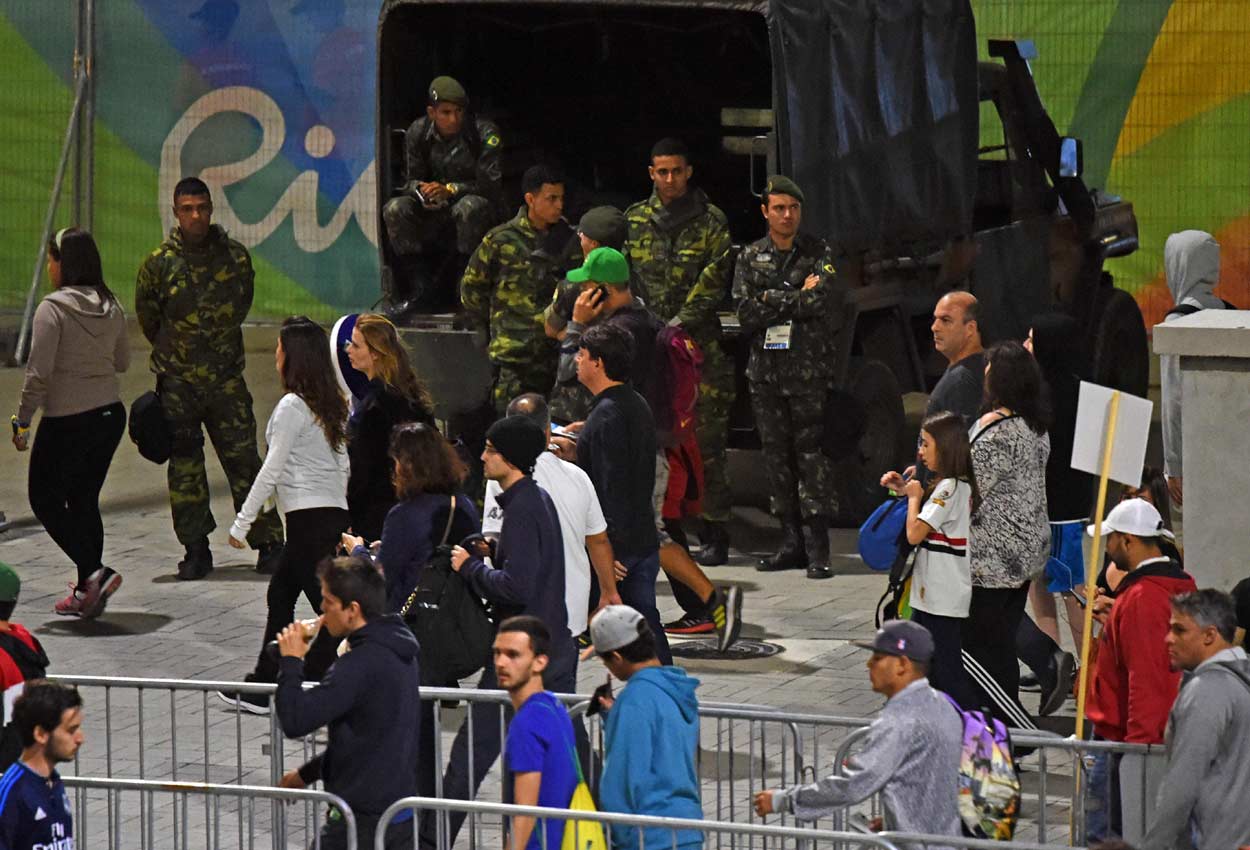RIO DE JANEIRO – Round-the-clock security will help prevent any “mousehole” incidents at the Rio Olympics after the sample-switching doping scandal at the 2014 Sochi Winter Games, a senior official said on Monday.
Anti-doping experts have raised their game after the uncovering of the Russian plot involving the sports ministry and secret police, where samples were routinely switched overnight using a hole in the laboratory wall.
Richard Budgett, the International Olympic Committee’s medical and scientific director, said procedures had been tightened since the World Anti-Doping Agency (WADA) revealed the Russian conspiracy.
“At the time we had great expertise in place but when you have the director of a laboratory involved in that way that is a challenge,” Budgett told reporters.
“Clearly our experts have complete access to every part of the laboratory here and every part of the process. We have changed the way that samples flow in a laboratory – they come in and they’re immediately opened, compared to what happened in Sochi.”
A WADA report last month detailed an elaborate scheme where drug-contaminated samples were replaced after dark with clean urine kept in a clandestine “operations room” next door to the main laboratory, using the mouse hole.
Russia topped the medals table at Sochi. A similar system to avoid positive tests was in operation at Moscow’s anti-doping laboratory, including during the 2013 world athletics championships, the report said.
Russia has its smallest contingent in more than a century at the Rio Olympics after doping revelations triggered a string of suspensions, with its track and field team barred en masse.
Budgett said in Rio, samples go straight to the city’s anti-doping laboratory and are opened immediately, cutting the risk of tampering.
Security measures include a network of security cameras – including one pointing at the door of the freezer where samples are kept, which is guarded constantly.
An independent expert decides if a sample is flagged up as suspicious. The lab has a multi-national staff and four directors, and is also overseen by WADA observers.
“So the whole thing is very carefully patrolled and allied to that will be forensic examination of samples as well to make sure that there’s been no tampering,” Budgett said.
“We take it extremely seriously. We’ve been talking with WADA to ensure the integrity of those samples is maintained… They (athletes) need to have absolute confidence in the process and I think they should have and they will have,” he added.
Budgett also said there were no concerns about the Rio lab after its WADA accreditation was temporarily suspended in June, blaming a “mistake” in procedures which had since been rectified.
The facility had passed intensive tests and has already analysed more than 3,000 samples at the Rio Games, he said.



















6.jpg)




























